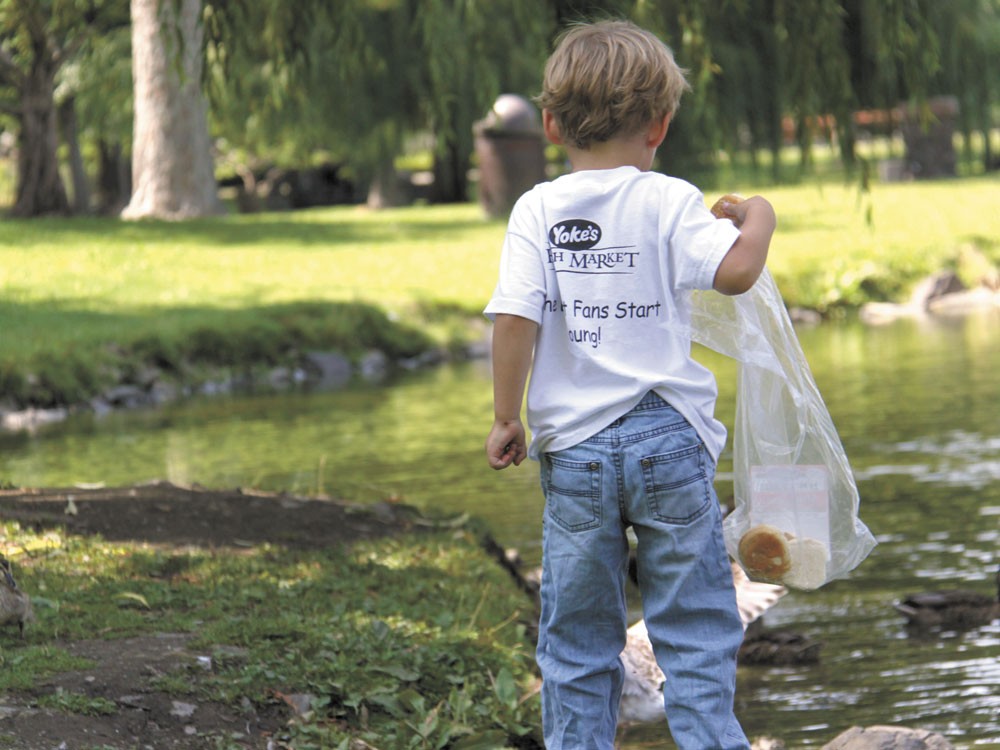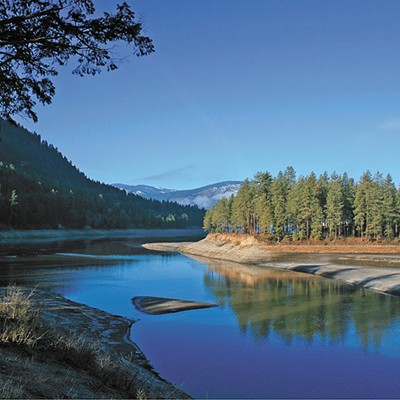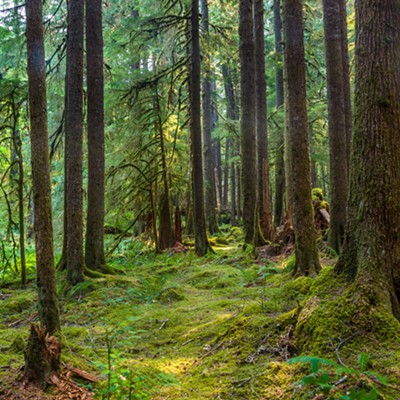Spokane Parks and Recreation rarely gets its hands dirty. By dabbling in community music classes and youth soccer programs, controversy has been rare. Until now.
In a struggle against the masses — one sure to end in hysteria considering the sheer number of children involved — the organization is taking on Spokanites and tourists of every demographic, begging: Please, don’t feed the damn ducks.
The conundrum goes something like this: Humans feed a few ducks stale bread, a massive population of free-rider ducks looking for junk food infiltrates the area, the ecosystem can’t support them — too many ducks means too much poop, which leads to poor water quality, bacteria and disease — and they get too fat to escape predators or fly south when the snow falls. So places like Spokane’s Manito Park pond fill with ducks, even more people come to feed them and the vicious cycle continues.
“I think when people feed birds, maybe they think they’re helping when they’re actually causing harm,” says Samantha Gibbs, a wildlife biologist with the U.S. Fish and Wildlife’s Migratory Birds Division. “If people really cherish that resource, the best thing they can do is to keep waterfowl wild.”
But this message is a hard one to push, especially considering who’s on the other side: young children who break into big smiles and laughter when the ducks swoop down for scraps of bread. But there’s also the Riverfront Park vandals who thought the altered sign “Don’t feed the f---s” was too funny to pass up.
And then there’s the Spokane tourism website, which encourages visitors to “bring some bread and treat both the ducks and your kids.” For the record, Parks and Rec has tried to get the site to remove that for five years, says spokeswoman Nancy Goodspeed. No luck.
Mary King, her daughter Krystle and her young granddaughter Cadence came to Manito on a mission Saturday, not to be stopped by those pesky signs imploring them not to feed the ducks. It’s something the family has done for generations, and without the birds they wouldn’t return to Manito much.
“This park wouldn’t be the same — the sounds and watching the kids smile,” Krystle says. “I would be willing to pay for something natural for them to eat.”
But that won’t do either, Gibbs says. It’s the overcrowding that’s causing problems — even the best food sources are problematic when the water is filled with poop. And the ducks eventually aren’t afraid to bite the hand that feeds them, so they’re more likely to stick around.
The issue evokes impassioned pleas from biologists and city officials, but there is currently no fine for feeding the ducks at any of Spokane’s parks. You won’t be asked to leave, arrested or wrestled into a patrol car. Chances are, you won’t even be noticed.
“This
is just what you do when you come to a park. Once these ducks reach
adulthood, they know what’s good for them,” says Justin Rolph as he
watches his friends release the turtle they caught from the pond and
tosses a few more shards of Pringles to the birds. “It’s a freakin’
duck.”























